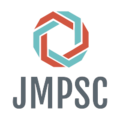Difference between revisions of "2021 JMPSC Sprint Problems/Problem 17"
Mathdreams (talk | contribs) (→Solution) |
Mathdreams (talk | contribs) |
||
| (2 intermediate revisions by one other user not shown) | |||
| Line 3: | Line 3: | ||
==Solution== | ==Solution== | ||
| − | Notice that <math> | + | Notice that <math>1003 \cdot n = 1000n + 3n</math>. Since <math>1000n</math> always has <math>3</math> zeros after it, we have to make sure <math>3n</math> has <math>3</math> nonzero digits, so that the last 3 digits of the number <math>1003n</math> doesn't contain a <math>0</math>. We also need to make sure that <math>n</math> has no zeros in its own decimal representation so that <math>1000n</math> doesn't have any zeros other than the last <math>3</math> digits. The smallest number <math>n</math> that satisfies the above is <math>\frac{111}{3}=37</math>, so the answer is <math>1003 \cdot 37 = \boxed{37111}</math>. |
~Mathdreams | ~Mathdreams | ||
| + | |||
| + | ~edited by tigerzhang | ||
| + | |||
| + | ==See also== | ||
| + | #[[2021 JMPSC Sprint Problems|Other 2021 JMPSC Sprint Problems]] | ||
| + | #[[2021 JMPSC Sprint Answer Key|2021 JMPSC Sprint Answer Key]] | ||
| + | #[[JMPSC Problems and Solutions|All JMPSC Problems and Solutions]] | ||
| + | {{JMPSC Notice}} | ||
Latest revision as of 17:15, 11 July 2021
Problem
What is the smallest positive multiple of ![]() that has no zeros in its decimal representation?
that has no zeros in its decimal representation?
Solution
Notice that ![]() . Since
. Since ![]() always has
always has ![]() zeros after it, we have to make sure
zeros after it, we have to make sure ![]() has
has ![]() nonzero digits, so that the last 3 digits of the number
nonzero digits, so that the last 3 digits of the number ![]() doesn't contain a
doesn't contain a ![]() . We also need to make sure that
. We also need to make sure that ![]() has no zeros in its own decimal representation so that
has no zeros in its own decimal representation so that ![]() doesn't have any zeros other than the last
doesn't have any zeros other than the last ![]() digits. The smallest number
digits. The smallest number ![]() that satisfies the above is
that satisfies the above is ![]() , so the answer is
, so the answer is ![]() .
.
~Mathdreams
~edited by tigerzhang
See also
The problems on this page are copyrighted by the Junior Mathematicians' Problem Solving Competition. 









